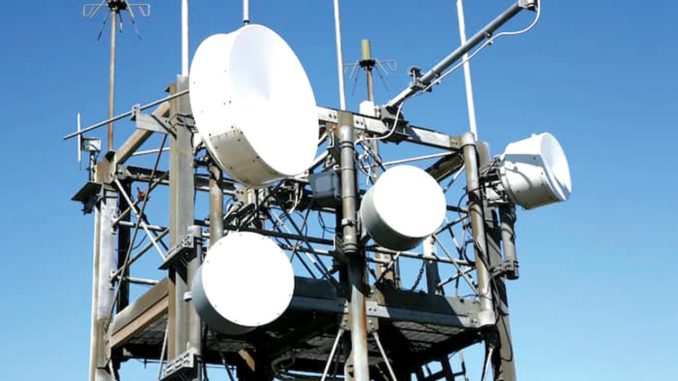
Operators seek 30 per cent slash in cost
Telecommunications operators on Monday in Lagos, revealed reasons behind the low investors’ response that greeted the auction conducted by the Nigerian Communications Commission’s (NCC) in the 2.6GHz spectrum earlier in the year.
The 2.6GHz spectrum is a broadband spectrum.
It will be recalled that only MTN bided and was announced winner of six lots out of the available 14 lots in the 2.6GHz spectrum licence in June. MTN paid N19.2 billion for the licence.
If the auction had got enough industry responses both local and international, in terms of investments, NCC would have raked in about N44 billion into the Federal Government’s coffers.
However, that was not to be, because of some loopholes in the process as identified by some operators at the NCC organized postmortem forum on the 2.6GHz auction.
The Director, Spectrum Administration at NCC, Austin Nwaulune, told the audience at the forum that NCC organised the postmortem forum to find out what went wrong with the auction exercise that forced the operators to back out from the exercise. He said that with various feedbacks got, the commission would subsequently be able to make proper adjustments in the future.
As such, most of the operators, who attended the forum, claimed not to have been comfortable with the conditions for the auction exercise, hence their reasons for backing out of the process.
They challenged NCC to the fact that every auction exercise, where the highest bidder wins has the characteristics of being lopsided, and designed to favour only big operator, which has the financial capability, to the detriment of small operators, whose financial base is not that strong.
The operators expressed reservations about reserved price of $16 million per lot, which they claimed was on the very high side, especially now that the country is going through recession.
According to them, most operators withdrew from the race after discovering that the conditions for the auction would pose serious business risk for them thereafter.
Spectranet Chief Executive Officer, David Venn, who opened the floor, stressed that the current auctioning process adopted by NCC, though transparent, favours big telecommunications operators with dip pockets which does not provide for equal opportunity to all players.
Regulatory Affairs, Manager, Ntel, Osondu Nwokoro, noted that difficulty in access foreign currency also played a very big role why operators did not bid for the spectrum.
“With the current foreign exchange issues in the country, it is difficult to get foreign investors to buy at reserved price. More so, accessing funding locally through the banks is also difficult with the current economic realities in the country,” he said.
From Etisalat’s point of view, the company’s Director, Regulatory and Corporate Social Responsibility, Ikenna Ikeme, said lack of access to local funding, especially from banks in the country, made telecoms business very difficult, and also slowed down investment in the sector.
A director at Airtel, Lateef Akintunde, was of the opinion that the reserved bid price of $16 million per lot was on the high side. He explained that the cost of spectrum rollout was also expensive and must be factored in when bidding for any in the future.
Earlier in his opening address, the Executive Vice Chairman of NCC, Prof. Umar Danbatta, who was represented by the Director of Public Affairs, Tony Ojobo, noted that despite the challenges faced by the country, the evolution of the telecommunications industry has been profound over the last 15 years.
Danbatta said the commission in consonance with its practice of collaborative regulation, seeks to get useful industry feedback on the auction with the aim of ensuring the effective and efficient usage of available spectrum bands for the delivery of broadband Internet access to Nigerians.
Going forward, while the operators demanded a 30 per cent reduction in the cost of selling frequency spectrum to them in Nigeria, Venn suggested revenue sharing framework where operators that emerged winners pay some amount of money while the balance could be recovered through revenue sharing system in the course of service operation with the spectrum.
This, according to him will attract a lot of investors as against the current system that does not have good business case to sell to shareholders.
The Spectranet boss also urged NCC to allow for spectrum sharing or trading as well as active infrastructure sharing that will encourage operators to roll out services.
He pointed out that as at the time NCC was considering the auction exercise, the price of data had already crashed in the telecoms market, a situation that affected the revenue generation of operators to bid for the 2.6GHz spectrum, which he claimed had always attracted heavy capital investment.
Iheme urged NCC to look at making available Universal Service Provision Fund (USPF) to operators for service roll out after paying for spectrum. According to him, ‘paying for spectrum is one thing while rolling out service with the spectrum is another which makes spectrum useful.’
From GSMA’s perspective, its Policy Manager, Spectrum, Kamal Tamawa, suggested going forward that NCC should look at the possibility of combining an expensive spectrum like 2.6 GHz, with other cheaper spectrum like the 700MHz and 800MHz spectrum that are less expensive, so as to attract investors.
Source: Guardian